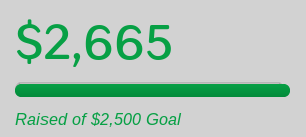For two reasons, Blackboard is the key to why I develop free software.
The first reason is historical. I first got into free software development because of my work with the CUNY Academic Commons project. As spearheaded by Matt Gold, George Otte and others, the Commons is intended to create a space, using free software like WordPress and MediaWiki for members of the huge community of the City University of New York to discover each other and work together. The project is not pitched as a Blackboard alternative, for a number of reasons (primary among which is that the Commons’s Terms of Service prohibit undergraduate courses from being held on the site). Still, the Commons was conceived, at least in part, out of frustration about the near lack of collaborative tools and spaces in CUNY. And more than anything else, Blackboard (by which I mean Blackboard Learn, the proprietary learning management software that has been CUNY’s official courseware for quite a few years) is the embodiment of what can be so frustrating about academic technology at CUNY: central management, inflexibility, clunkiness, anti-openness. In this way, Blackboard begat the CUNY Academic Commons, and the CUNY Academic Commons begat Boone the developer.
There is another reason why Blackboard is integral to my free software development. It is ideological.
Short version: I love CUNY and I love public education. Blackboard is a parasite on both. Writing free software is the best way I know to disrupt the awful relationship between companies like Blackboard and vulnerable populations like CUNY undergraduates.
Here’s the longer version. I’ve been affiliated with CUNY in a number of capacities over the last decade: PhD student, adjunct lecturer, graduate fellow, full-time instructional technologist, external contractor. I’ve seen many parts of CUNY from many different points of view. Like so many others who have philandered their way through CUNY’s incestuous HR departments, my experience has rendered a decidedly love/hate attitude toward the institution. You can get a taste of the what CUNY hate looks like by glancing at something like @CUNYfail. The love runs deeper. Those fortunate enough to have “gotten around” at CUNY can attest to the richness of its varied campus cultures. In every office and every department on every campus, you’ll meet people who are innovating and striving to get their work done, in spite of a bureaucracy that sometimes feels designed to thwart.
And the students. CUNY is the City University of New York, the City University. It belongs to New York, and its history is tied up with the ideals of free education for New York’s residents. While the last few decades have seen the institution (as a whole, as well as a collection of campuses) evolve away from these ideals in various official and unofficial ways, it’s impossible to step into a CUNY classroom without getting a sense that CUNY still serves as a steward for New York’s future. CUNY is too huge and its population too varied to make general statements about the student body, but I’ll say anecdotally that, of all the universities I’ve been associated with, none even approach the level of racial, economic, and academic diversity that you find on a single campus, to say nothing of the system as a whole. CUNY is (to use a lame but apt cliché) a cross-section of New York: her first-generation Americans, her first-generation college students, her rich and her poor, her advantaged and her vulnerable. (See also Jim Groom’s I Bleed CUNY, which makes a similar point with a lot less abandon.)
Public education is a public trust, maybe the most important equalizer a state can provide for its citizens. CUNY, with the population of New York City as its public, could demonstrate the full potential of public education in a more complete and visible way than perhaps any other public university. It’s for this reason that it breaks my heart and boils my blood to see CUNY money – which is to say, student tuition and fees – poured into a piece of software like Blackboard.
In virtue of their age, undergraduates are inherently a vulnerable population, and CUNY undergraduates – reflecting as they do the full demographic spectrum of New York City itself – are doubly vulnerable. Many CUNY undergraduates go to CUNY because if they didn’t, they wouldn’t go to college at all. This imposes certain moral strictures on those responsible for managing and spending the money paid by CUNY students in tuition and fees. Wasting CUNY money is a far worse crime than wasting, say, shareholder money in a private company. Shareholders have freedom; if they don’t like your management, they vote with their feet/wallets/brokers. CUNY students, by and large, do not have the same freedom; it’s safe to say that, for most CUNY students most students, big-ticket NYU and Ivy Columbia are not reasonable alternatives. CUNY students are, in this sense, captive, which means that their hard-earned tuition money is captive as well. Thus it is a very bad thing to spend that money on things that aren’t worth it.
And Blackboard is not worth it. Vats of digital ink have been spilled expounding Blackboard’s turdiness, and this is no place to rehash all the arguments in depth. A short list, off the top of my head:
- The software is expensive [EDIT 9-21-2011: See this post for more details on cost]
- It’s extremely unpleasant to use.
- It forces, and reinforces, an entirely teacher-centric pedagogical model.
- It attempts to do the work of dozens of applications, and as a result does all of them poorly.
- Blackboard data is stored in proprietary formats, with no easy export features built in, which creates a sort of Hotel California of educational materials
- The very concept of a “learning management system” may itself be wrongheaded.
- As recently reported, the software may be insecure, a fact that the company may have willingly ignored.
- Blackboard’s business practices are monopolistic, litigious, and borgish
In short, Blackboard sucks. Blackboard supporters might claim that some, or even most, of the criticisms leveled above are false, or that they apply equally to other web software. Maybe. And I certainly don’t mean to downplay the difficulty of creating or assembling a suite of software that does well what Blackboard does poorly. But the argument against spending student money on something like Blackboard goes beyond a simple tally of weaknesses and strengths. As Jim Groom and others have argued for years, shelling out for Blackboard means sending money to a big company with no vested interest in the purposes of the institution, which in the case of CUNY is nothing less than the stewardship of New York City’s future, while the alternative is to divert money away from software licenses and into people who will actually support an environment of learning on our campuses. Frankly, even if Blackboard were a perfect piece of software, and even if its licensing and hosting fees were half of what it costs to hire full-time instructional technologists, programmers, and the like to support local instances of free software; even if these things were true, Blackboard would still be the wrong choice, because it perverts the goals of the university by putting tools and corporations before people. The fact that Blackboard is so expensive and so shitty just makes the case against it that much stronger.
As long as our IT departments are dominated by Microsoft-trained technicians and corporate-owned CIOs, perhaps the best way to advance the cause – the cause of justice in the way that student money is spent – is to create viable alternatives to Blackboard and its ilk, alternatives that are free (as in speech) and cheap (as in beer). This, more than anything else, is why I develop free software, the idea that I might play a role in creating the viable alternatives. In the end, it’s not just about Blackboard, of course. The case of Blackboard and CUNY is a particularly problematic example of a broader phenomenon, where vulnerable populations are controlled through proprietary software. Examples abound: Facebook, Apple, Google. (See also my Project Reclaim.) The case of Blackboard and its contracts with public institutions like CUNY is just one instance of these exploitative relationships, but it’s the instance that hits home the most for me, because CUNY is such a part of me, and because the exploitation is, in this case, so severe and so terrible.
On average, I spend about half of my working week doing unpaid work for the free software community. Every once in a while, I get discouraged: by unreasonable feedback, by systematic inertia, by community dramas, by my own limitations as a developer, and so on. In those moments, I think about CUNY, and I think about Blackboard, and I feel the fire burn again. For that, I say to CUNY (which I love) and Blackboard (which I hate): Thanks for making me into a free software developer.


